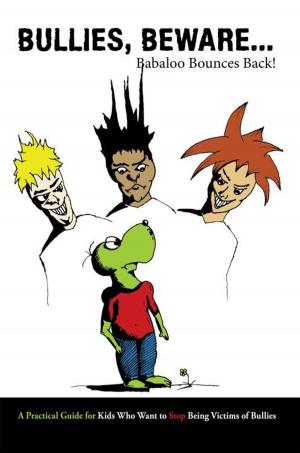The Village Boy
Nonfiction, Social & Cultural Studies, Social Science, Sociology, Biography & Memoir| Author: | Ayuba Mshelia | ISBN: | 9781467850360 |
| Publisher: | AuthorHouse | Publication: | June 12, 2009 |
| Imprint: | AuthorHouse | Language: | English |
| Author: | Ayuba Mshelia |
| ISBN: | 9781467850360 |
| Publisher: | AuthorHouse |
| Publication: | June 12, 2009 |
| Imprint: | AuthorHouse |
| Language: | English |
The story Village Boy is about the social and
familial upheavals and confl icts caused by the
introduction, in the early 20th century, by a group
of Christian missionaries, of Western cultural
traditions among an erstwhile peaceful and selfsuffi
cient agricultural sedentary people. These
cultural incursions led to the annihilation of the
peoples native traditions and cultures, including
those of Kachiya and Mbwarhatha(circumcision and
grind room- the only place where on a daily basis
young men could meet and fl irt with young women
in the evenings) which were the sole socialization instruments of the tribe. The
fulcrums of our culture and traditions that have sustained us for all these years
can now no longer hold, commented the tribal elder, Tapchi, to a boyhood friend,
Aji, fi ve years after the coming of the missionaries; everything is different and
in a sorry chaos!
This breakdowns led to the mass exodus of the youth to the distant emerging cities
of Kano, Jos, Kaduna ,and, yes, even Lagos. These new immigrants, however,
faced steep competition for jobs both from the citys residents and from other
migrants who had converged on the cities from all corners of the countryside.
Their meager education forced them into menial jobs, such as house boys or
store clerks; few were able to secure even low-level government jobs.
The social confl ict and upheaval was partially resolved, to some minimally
acceptable levels, by the regular annual visits of those who had left the land,
bringing with them gifts of tea, sugar, bread, and items of clothing which were
generously and lavishly shared with relatives and neighbours. Some few who
had made it, in the city even came with their own mettika (cars).
But things are not always as gloomy as is refl ected in the lives of Madu, Dalla,
and, to some extent, Hassana in the stories that follow. Some of the tribes
migrant sons and daughters to the cities (like Madu in the story) took to politics
and became active, relevant and prominent during the early years of self-rule
and eventual Independence. Education has been, and continues to be, the
social instrument of mobility for the children of the migrants and for those who
remained on the land, as for example, Dalla. They can now be found in all sectors
of the Nigerian society, as educators, business men, politicians and high cadre
civil servants.
The story Village Boy is about the social and
familial upheavals and confl icts caused by the
introduction, in the early 20th century, by a group
of Christian missionaries, of Western cultural
traditions among an erstwhile peaceful and selfsuffi
cient agricultural sedentary people. These
cultural incursions led to the annihilation of the
peoples native traditions and cultures, including
those of Kachiya and Mbwarhatha(circumcision and
grind room- the only place where on a daily basis
young men could meet and fl irt with young women
in the evenings) which were the sole socialization instruments of the tribe. The
fulcrums of our culture and traditions that have sustained us for all these years
can now no longer hold, commented the tribal elder, Tapchi, to a boyhood friend,
Aji, fi ve years after the coming of the missionaries; everything is different and
in a sorry chaos!
This breakdowns led to the mass exodus of the youth to the distant emerging cities
of Kano, Jos, Kaduna ,and, yes, even Lagos. These new immigrants, however,
faced steep competition for jobs both from the citys residents and from other
migrants who had converged on the cities from all corners of the countryside.
Their meager education forced them into menial jobs, such as house boys or
store clerks; few were able to secure even low-level government jobs.
The social confl ict and upheaval was partially resolved, to some minimally
acceptable levels, by the regular annual visits of those who had left the land,
bringing with them gifts of tea, sugar, bread, and items of clothing which were
generously and lavishly shared with relatives and neighbours. Some few who
had made it, in the city even came with their own mettika (cars).
But things are not always as gloomy as is refl ected in the lives of Madu, Dalla,
and, to some extent, Hassana in the stories that follow. Some of the tribes
migrant sons and daughters to the cities (like Madu in the story) took to politics
and became active, relevant and prominent during the early years of self-rule
and eventual Independence. Education has been, and continues to be, the
social instrument of mobility for the children of the migrants and for those who
remained on the land, as for example, Dalla. They can now be found in all sectors
of the Nigerian society, as educators, business men, politicians and high cadre
civil servants.















